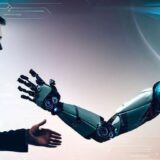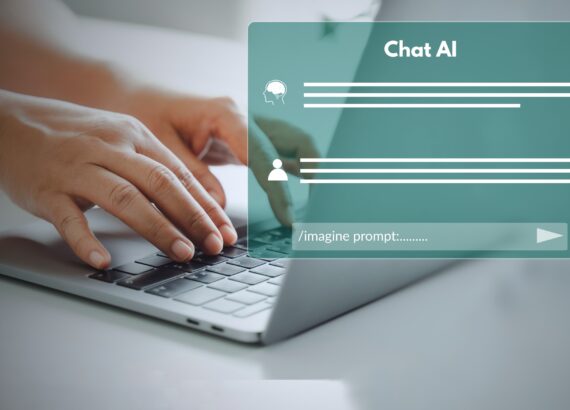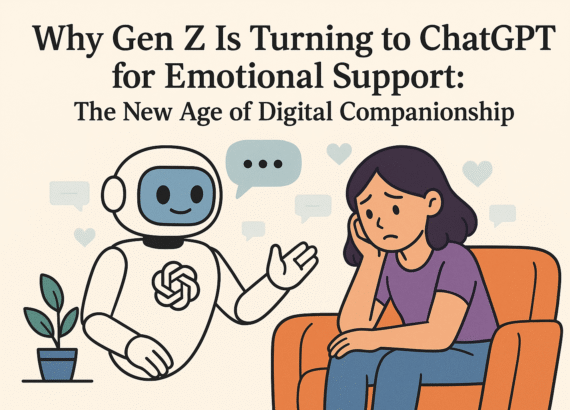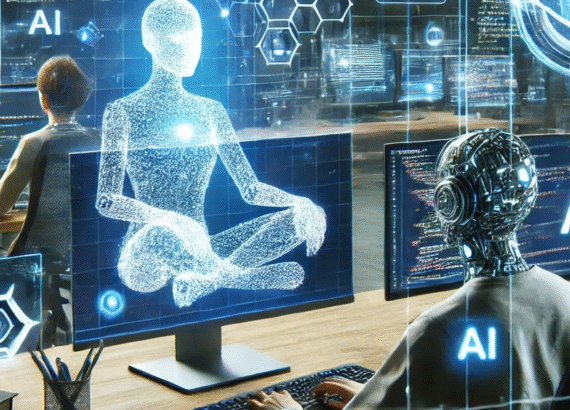The Rise of Artificial Intelligence: Will Machines Take Over Humanity?
Artificial intelligence (AI) has made remarkable strides in recent years, transforming various aspects of our lives and reshaping entire industries. From self-driving cars and voice-activated assistants to sophisticated recommendation algorithms and advanced data analytics, AI has become an integral part of our society. As AI continues to evolve at an unprecedented pace, it raises important questions and concerns about its impact on humanity. Will machines eventually surpass human intelligence? What ethical challenges does the rise of AI bring? This article delves into the complex landscape of artificial intelligence, exploring its definition, societal implications, ethical considerations, and the potential of AI to enhance human potential while examining the risks it poses.
1. Introduction: The rapid advancement of Artificial Intelligence
The Evolution of Artificial Intelligence
Remember the good old days when AI was just a concept in science fiction movies? Well, fasten your seatbelts, because artificial intelligence has come a long way since then. From humble beginnings in laboratories to the mainstream adoption of AI-powered devices, the evolution of artificial intelligence has been nothing short of remarkable.
The Growing Influence of AI in Everyday Life
AI is no longer confined to the realms of science fiction or the tech elite. It has infiltrated our everyday lives, whether we realize it or not. From voice assistants like Siri and Alexa to personalized recommendations on social media platforms, AI is constantly shaping our experiences. It’s like having a helpful, yet slightly nosy, companion lurking in our smartphones and smart homes.
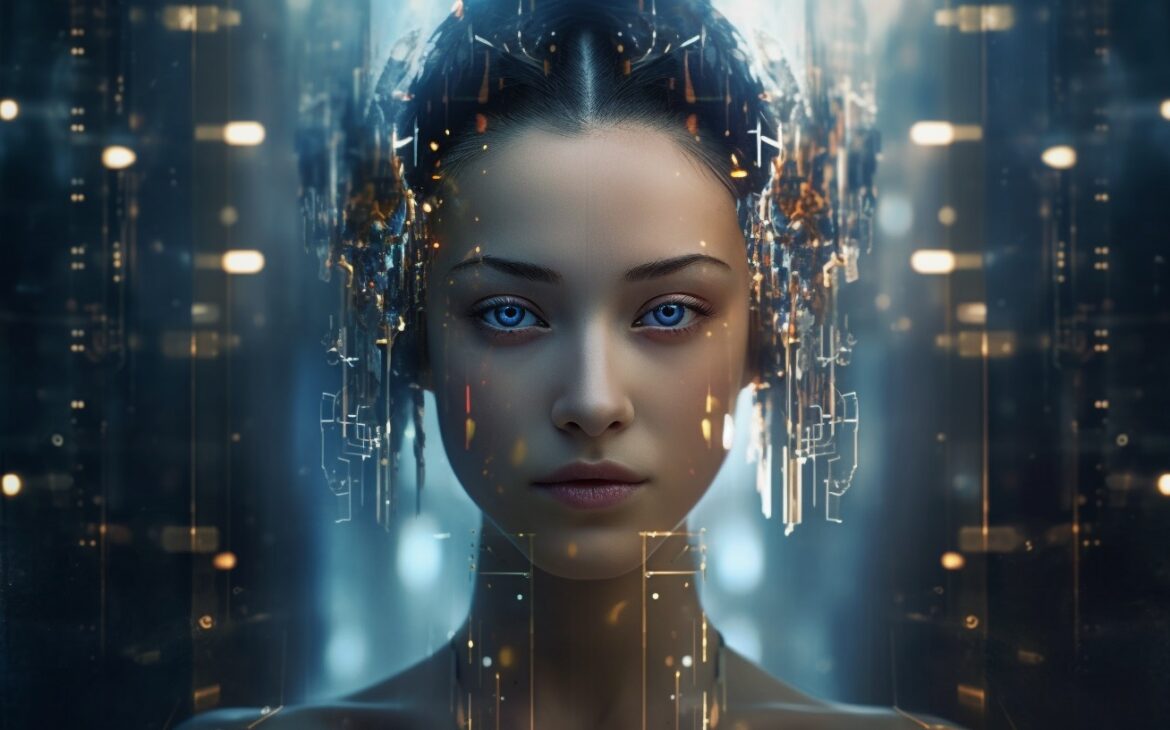
2. Understanding Artificial Intelligence: Definition and Scope
Defining Artificial Intelligence
Artificial Intelligence, or AI for short, refers to the development of computer systems that can perform tasks that typically require human intelligence. These tasks include speech recognition, problem-solving, learning, and decision-making. In other words, AI is all about teaching machines to think and act like humans, minus the emotions (for now).
The Different Types of AI
AI is not a one-size-fits-all concept. There are different types of AI, each with its own set of capabilities. From narrow AI, which excels at specific tasks like playing chess or recommending movies, to general AI, which aims to mimic human intelligence across a wide range of domains, the AI landscape is vast and ever-expanding.

3. The Impact of Artificial Intelligence on Society and Industries
Transforming Industries with AI
AI is revolutionizing industries left, right, and center. From healthcare and finance to transportation and entertainment, AI-powered technologies are streamlining processes, enhancing efficiency, and improving outcomes. It’s like having a tireless employee that doesn’t need bathroom breaks (or paychecks).
AI’s Influence on Employment and the Workforce
With the rise of AI, concerns about job displacement have become a hot topic of debate. While some fear that AI will render humans obsolete, others argue that it will create new roles and opportunities. It’s like a technological game of musical chairs, where humans need to adapt and find their new seats in the workforce.
Positive Social Impacts of AI
AI isn’t all doom and gloom; it brings plenty of positive changes to society. It has the potential to revolutionize healthcare, improve accessibility, and aid in disaster response. Imagine a world where machines help us live longer, healthier lives while also saving kittens stuck in trees. It’s a win-win (especially for the kittens).
Negative Social Impacts of AI
However, like any powerful tool, AI also has its darker side. Concerns about privacy, data security, and algorithmic biases have arisen. There are legitimate worries that AI could exacerbate inequalities or be exploited for nefarious purposes. It’s like handing the keys to a mischievous teenager – things could go wrong if not carefully managed.
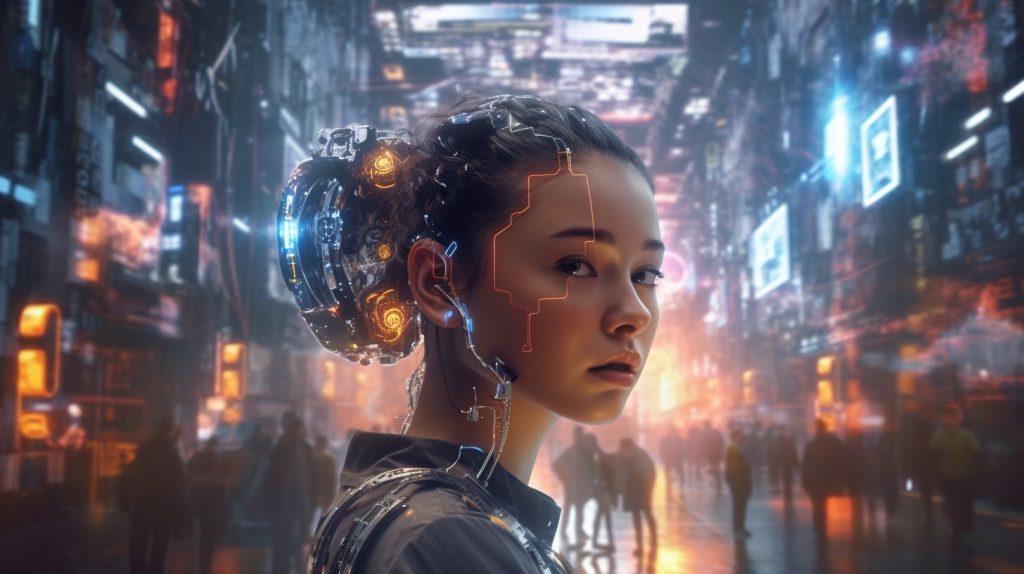
4. Ethical Questions: AI and the Future of Humanity
AI and Human Rights
As AI becomes more intertwined with our lives, questions about human rights and AI’s impact on them arise. Issues like algorithmic discrimination, surveillance, and the right to privacy need urgent attention. It’s like a philosophical battle between human values and the capabilities of intelligent machines.
Privacy and Data Security Concerns
AI relies heavily on data, often personal and sensitive, to learn and make decisions. This raises concerns about the security and privacy of our personal information. It’s like entrusting our secrets to a robotic confidant – will they keep them safe or spill the beans to the highest bidder?
The Moral Responsibility of AI Developers
As creators of AI, developers hold a significant moral responsibility. They are the architects of our AI-driven future, and their choices and actions will shape society. It’s like being the parent of a mischievous child – they must guide and teach AI to be a responsible member of society (no pressure).
In conclusion, artificial intelligence is transforming various aspects of our lives and society. While the rise of AI brings countless opportunities and benefits, it also poses challenges and ethical questions that need careful consideration. So, as we navigate this exciting frontier, let’s embrace AI’s potential while keeping a watchful eye on its impact on humanity. After all, the fate of the world might just depend on it (okay, maybe that’s a bit dramatic, but you get the point).

5. AI vs. Human Intelligence: Capabilities and Limitations
The Power of AI: Strengths and Advantages
Artificial Intelligence (AI) has made significant advancements in recent years, showcasing its remarkable capabilities. Machines equipped with AI have the ability to process enormous amounts of data at a lightning-fast speed, enabling them to make complex decisions and predictions with great accuracy. AI’s algorithms can detect patterns, extract insights, and identify trends that might go unnoticed by human intelligence. The efficiency and precision of AI make it highly valuable in fields like healthcare, finance, and manufacturing, where its computational power can optimize processes and improve outcomes.
The Unique Abilities of Human Intelligence
While AI possesses impressive computational abilities, human intelligence has its own unique strengths. Our creativity, emotional intelligence, and critical thinking skills allow us to navigate complex social interactions, solve ambiguous problems, and make moral and ethical judgments. Additionally, humans possess empathy and intuition, which play crucial roles in fields like counseling, customer service, and artistic expression. Human intelligence is multi-faceted and adaptable, giving us the capacity to understand nuance, make connections, and bring a human touch to various domains.
The Collaborative Potential of AI and Human Intelligence
Rather than viewing AI as a threat, we should recognize its potential to augment human intelligence. By combining the computational power of AI with the creative and emotional capabilities of humans, we can achieve new heights of innovation and problem-solving. AI can assist humans by automating repetitive tasks, analyzing vast amounts of data, and offering insights that enhance decision-making. Embracing collaboration between AI and human intelligence can unleash the full potential of both, leading to groundbreaking discoveries and solutions that benefit society as a whole.

6. The Role of AI in Enhancing Human Potential
AI-assisted Healthcare and Medicine
AI has the potential to revolutionize healthcare and medicine. From diagnosing diseases at early stages to predicting patient outcomes, AI-powered systems can provide valuable insights that assist medical professionals in making informed decisions. AI algorithms can analyze medical records, detect patterns in symptoms and treatments, and even suggest personalized treatment plans. This collaboration between AI and human healthcare providers can lead to improved patient care, enhanced accuracy, and more efficient medical interventions.
AI in Education and Personal Development
In the realm of education, AI can reshape the learning experience. Intelligent tutoring systems can adapt to individual students’ needs, providing personalized instruction and feedback. AI-powered tools can automate administrative tasks, allowing teachers to focus on student engagement and creativity. Moreover, AI can assist in lifelong learning and personal development by offering tailored recommendations for skill development, career choices, and self-improvement. With AI’s guidance, individuals can unlock their full potential and pursue their goals more effectively.
AI’s Impact on Creativity and Innovation
Contrary to popular belief, AI is not a threat to human creativity. Rather, it can be a powerful tool for fostering innovation. By automating repetitive tasks and offering data-driven insights, AI frees up human creative potential. AI can generate ideas, inspire new perspectives, and provide suggestions that human minds might not have considered. This collaboration allows humans to focus on the imaginative and inventive aspects of their work, propelling creativity and fostering groundbreaking innovations in fields such as art, music, and design.
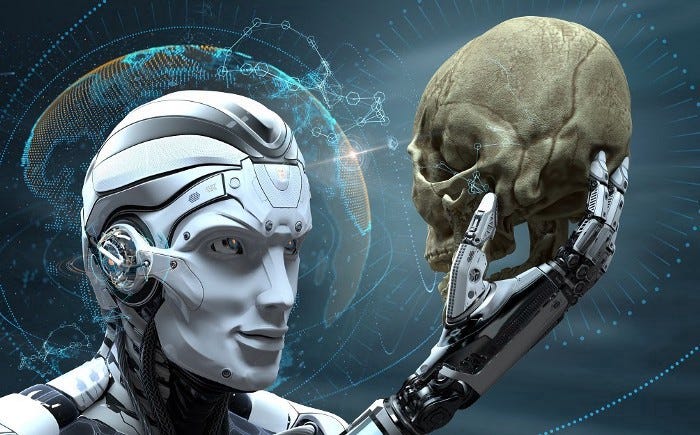
7. Potential Risks and Concerns: Safeguarding Against AI Misuse
The Threat of Superintelligence
While AI offers immense potential, we must be mindful of its risks. The development of superintelligent AI, capable of surpassing human intelligence and potentially acting autonomously, raises concerns about control and ethical considerations. Safeguards must be in place to ensure that AI remains aligned with human values and does not pose risks to humanity’s well-being. Ethical frameworks, constant evaluation, and responsible development practices are necessary to mitigate the risks associated with the exponential growth of AI.
Addressing Bias and Discrimination in AI Systems
Another pressing concern is the potential for bias and discrimination in AI systems. AI algorithms are trained on vast amounts of data, and if the training data contains biases, the AI system may inadvertently perpetuate them. It is crucial to address this issue by promoting diversity in AI development teams, implementing thorough data screening processes, and continuously monitoring AI systems for biases. By ensuring fairness and inclusivity in AI systems, we can prevent the amplification of societal biases and promote equal opportunities for all.
Regulating AI: Balancing Innovation and Safety
As AI continues to advance, there is a need for regulation to ensure a balance between technological progress and safety. Effective regulations can provide guidelines for the responsible development, deployment, and use of AI systems. These regulations should encourage transparency, accountability, and privacy protection. Striking the right balance between innovation and safety will allow AI to flourish while minimizing potential risks and ensuring that AI serves the best interests of humanity.

8. Striking a Balance between AI Progress and Human Values
The rise of AI presents both opportunities and challenges. By recognizing and harnessing the strengths of AI while embracing the unique abilities of human intelligence, we can create a harmonious collaboration that enhances our collective potential. It is essential to address the risks associated with AI, such as superintelligence and bias, through ethical practices, diversity, and regulation. By striking a balance between AI progress and human values, we can navigate the future with confidence, leveraging AI to create a better world for all.
Conclusion
In conclusion, the rise of artificial intelligence presents both incredible opportunities and significant challenges for humanity. While AI has the potential to enhance our lives, improve efficiency, and push the boundaries of innovation, it is crucial to strike a balance between AI progress and human values. As we navigate the ever-evolving landscape of AI, it is essential to address ethical concerns, safeguard against potential risks, and ensure that AI technologies are developed and utilized in a way that aligns with the best interests of humanity. By embracing responsible development, regulation, and collaborative efforts, we can harness the power of artificial intelligence while preserving our core values and protecting the future of humanity.
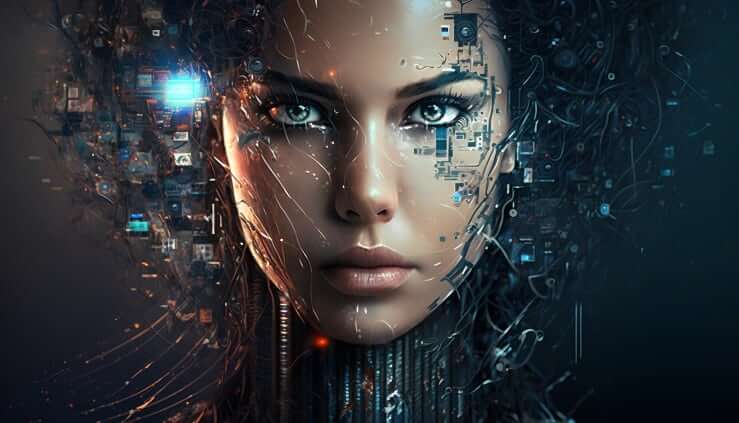
FAQ
1. Will machines replace humans entirely with the advancement of artificial intelligence?
Machines may excel in specific tasks and domains, but it is unlikely that they will completely replace humans. While AI can automate certain processes and augment human capabilities, human intuition, creativity, and complex decision-making abilities are still invaluable. The goal should be to find a harmonious balance between AI and human intelligence, where they complement each other rather than compete.
2. What are the ethical concerns surrounding AI?
Ethical concerns related to AI include privacy and data security, algorithmic bias, transparency, accountability, and the potential misuse of powerful AI technologies. As AI systems make decisions that affect individuals and societies, it is crucial to ensure fairness, prevent discrimination, and establish guidelines for responsible AI development and deployment.
3. How can AI enhance human potential?
AI has the potential to enhance human potential in numerous ways. For example, in healthcare, AI can assist doctors in diagnosing diseases and recommending treatment plans, leading to more accurate and personalized care. In education, AI can provide personalized learning experiences tailored to individual students’ needs. Additionally, AI can automate repetitive tasks, allowing humans to focus on higher-level cognitive activities and creative pursuits.
4. How can we ensure the safety of AI systems?
Ensuring the safety of AI systems requires a multi-faceted approach. It involves implementing robust regulations and standards for AI development and deployment. Additionally, ethical guidelines and accountability frameworks should be established to address the potential risks associated with AI. Collaboration between policymakers, researchers, and industry experts is crucial to create a safe and responsible AI ecosystem that prioritizes human welfare and minimizes potential risks.



